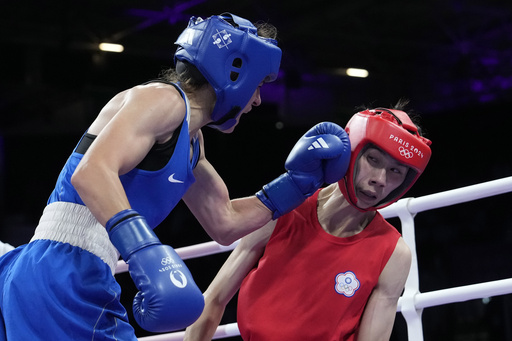Algerian boxer Imane Khelif was tearful after her recent victorious fight, following days of backlash and false accusations about her gender. Supporters expressed that the negative comments were fueled by racism. Women of color have historically faced discrimination and scrutiny in sports in relation to gender testing and false suspicions of being male or transgender, experts say.
Global South and developing country female athletes are disproportionately affected by sex testing in sports, according to Payoshni Mitra, director of the Center for Sport and Human Rights. Mitra pointed out that international sporting bodies often lack diversity in understanding sex and gender identity, with gender tests primarily targeting female athletes of color who do not fit Western ideals of femininity.
Athletes like South African runner Caster Semenya and Indian sprinter Dutee Chand have challenged regulations on naturally occurring testosterone levels for female athletes. Semenya, who has differences in sex development causing high testosterone levels, faced a legal battle against rules requiring her to suppress testosterone to compete. Critics argue that naturally high testosterone should be considered a genetic advantage, similar to physical traits that benefit other athletes.
Women of color, particularly Black women, have endured stereotypes portraying them as masculine, stemming from historical racism and slavery. Tennis star Serena Williams and basketball player Brittney Griner have faced baseless accusations about their gender. Scholars note that racism, transphobia, and intersex phobia often intersect, perpetuating harmful stereotypes about Black women being less feminine or too muscular.
Khelif was disqualified from the 2023 world championships by the International Boxing Association due to alleged failing of eligibility tests related to elevated testosterone levels. The IOC denounced the lack of transparency and flawed process in Khelif’s case. The IOC released a gender and sex inclusion approach in 2021 to ensure a fair and respectful environment for athletes. Algerians have shown support for Khelif amid the controversy, with fellow athlete Zahra Tatar praising her performance.
The adverse treatment of women athletes of color highlights the importance of addressing biases and promoting inclusivity in sports. It is crucial for sporting organizations to uphold fair competition standards while respecting athletes’ identities. The support for Khelif reflects a broader movement toward recognizing and advocating for equity and dignity in sports.
